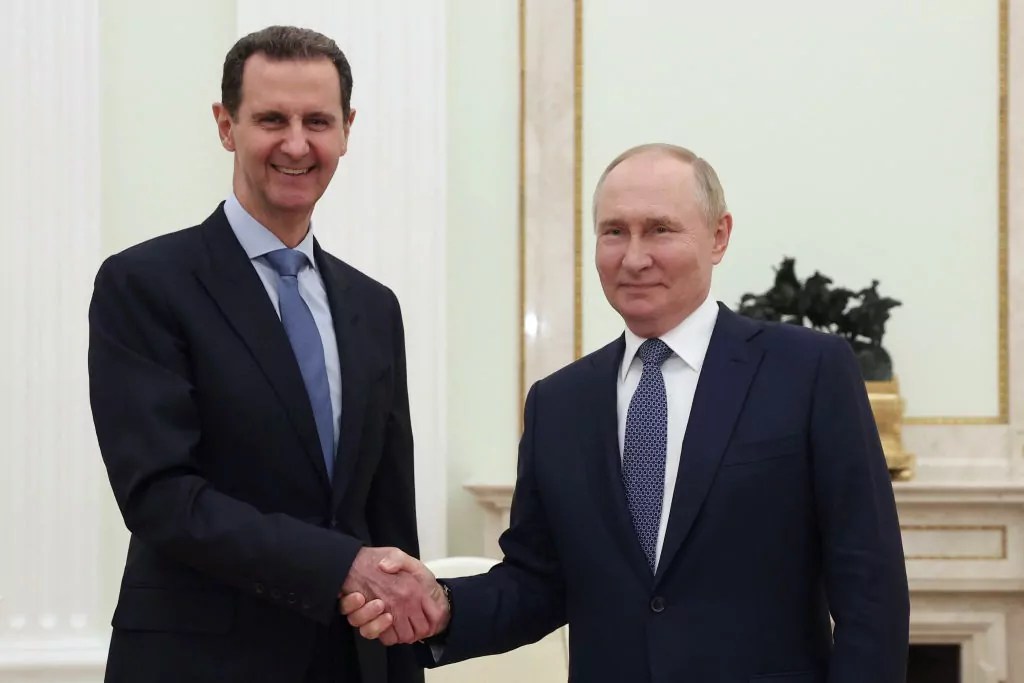


The fall of Syrian dictator Bashar al Assad last year should have marked the end of Russia’s hold on that country. Unfortunately, as Syria’s new leader, Ahmed al Sharaa, consolidates power, Washington is standing back. Russia, though weakened by the war in Ukraine, is moving to reclaim its influence.
The Soviet Union first established naval access at the Syrian port of Tartus in the 1970s, giving Russia its only Mediterranean port. That presence grew in 2015, when Moscow started operating the Khmeimim air base near Latakia and launched a military campaign that kept al Assad in power. Russian airstrikes turned the course of the civil war and devastated cities, contributing to the deaths of more than half a million Syrians. Moscow’s backing was indispensable. However, problems began when Russia’s resources were tied down in Ukraine. As Sharaa’s forces, backed by Turkey, advanced late last year, Assad’s regime fell in a matter of weeks. The speed of the collapse showed how dependent Damascus had been on Moscow.
Recommended Stories
- Report highlights Hamas links with medical NGOs
- 'A picture of virtue': Charlie Kirk's noble aim
- Charlie Kirk epitomized the best of our civic tradition
That collapse created a historic opening. For the first time in decades, the Kremlin’s influence in Syria could have been rolled back. Most importantly, there was an opportunity to close Moscow’s only naval base on the Mediterranean. That would have cut off a strategic lifeline that afforded Russia reach into the region and further for half a century.
Yet Washington has done little to capitalize on this opportunity. There appears to be no clear plan for Syria’s political or security future, and no push to lock in a post-Assad settlement that would limit Russia’s return. Yes, Washington rightly treats Sharaa with caution. The Syrian leader is struggling to consolidate power. Large parts of the country remain outside his control, and Syria’s ethnic and sectarian divides are hard to manage for the new leadership. While Sharaa does speak about a unified multi-ethnic state, as he cements power, it’s unclear what course he may ultimately take.
While Washington hesitates, Moscow is not missing the chance to fill the gaps. This week, Deputy Prime Minister Alexander Novak led a delegation to Syria, offering aid and energy cooperation and announcing that Sharaa will travel to Moscow in October. Iran will also undoubtedly try to restore the prior influence it poured out blood and money to build alongside Assad. By cultivating religious and political ties, Tehran will try to ensure its presence outlasts Sharaa. Just as it entrenched itself in Iraq after Saddam Hussein’s fall by backing militias and political parties, Iran is likely to use the Alawites and sectarian divides in the country.
Iran’s interest is a problem for Israel. The Iranian proxy Hezbollah long used Syria to strike Israel, hence why it is now speaking about establishing a security zone around the Golan Heights with the declared goal of aiding Druze communities.
Washington has tried to push Syria toward normalizing relations with Israel, but the effort has gone nowhere so far. Sharaa, on his part, uses Israeli strikes as a reason to keep close to Moscow, claiming Syria needs a balance against outside threats. With no one offering him real alternatives or pressing him to limit Russia’s role, he has little incentive to change course.
POLAND ACCUSES RUSSIA OF ‘PROVOCATION’ AFTER DRONE CRASH ON BORDER
Israel, too, may prefer a weakened Russian foothold in Syria to the prospect of a stronger Turkish one. But treating Moscow as the lesser evil risks entrenching a power whose role in Syria has been one of destruction, not stability.
Assad’s collapse created a chance to reshape Syria’s course and sideline Moscow. But as Washington has held back, regional actors are hedging. At the same time, Russia is steadily reinserting itself into Damascus’s corridors of power. If Washington won’t decide what comes next in Syria, Moscow will.
